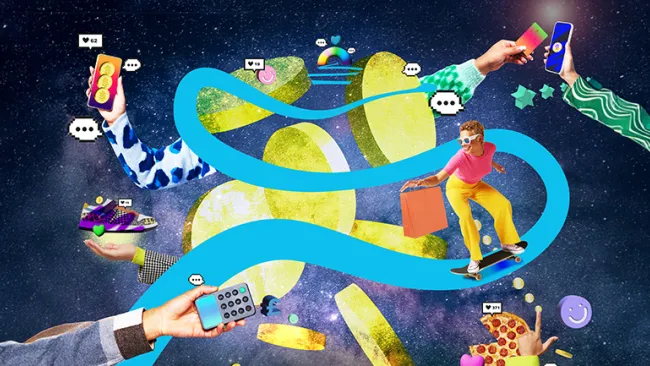Excellent customer service—that special recipe of anticipating consumers’ needs, delivering on promises, and providing a pleasurable experience along the way—plays a key role in a brand’s ability to thrive. Great service almost always keeps customers and clients coming back for more.
As consumers grow savvier and have mounting competition fighting for their dollars, a growing number of companies are taking customer service to the next level: concierge.
A concierge offers one-on-one, personalized attention and assistance, with everything from booking a dinner reservation to buying a car. It’s the job of a concierge to make each customer or client feel special. When it’s done right, experts say, the strategy can pay off for companies in more ways than one.
“Concierge service is a smart add-on amenity that forward-thinking business owners and managers offer their customers,” says Nancy Friedman, president of Telephone Doctor, which trains small and mid-sized businesses in improving consumer relations. “Smart businesses hire concierges to provide that extra service their competitors may not.”
Doing so makes businesses stand out, improves their brand, leads to return business from customers, and ensures customers get the answers they want and need, she says.
“Nothing impresses a customer more than a smart concierge who is not only knowledgeable, but polite and has the answers to every possible question,” says Friedman. “A good concierge is good for business, but even better for your customer and your company’s brand and image.”
Companies increasingly see the value, according to Katharine Giovanni, an author who has written several books about concierge customer service. She trains customer service employees, concierges and front desk workers for various companies, including Subaru.
Twenty years ago, fewer than 20 major companies included concierge as part of their customer experience strategy, she says. By 1999, a groundswell of companies became interested and the trend has only accelerated from there.
More and more, brands are training front-line staff to think and act like a concierge, she says.
“We now have concierge in probably every major city around the world,” Giovanni says. “The concierge idea is starting to creep into the customer experience. Fortune 500 companies, like Facebook and Subaru, are all thinking, ‘If my customers get really great service, they’ll be happier and buy more.’”
Reverie
When shoppers buy a customized mattress from Detroit-based Reverie, which does business throughout the United States, concierge service comes in the form of the “Reverie 365 Promise.”
The package includes a product concierge who helps buyers through the shopping process, a sleep coach who helps develop a personalized sleep plan, “curated sleep content,” and other benefits.
The buying process is designed to ensure each consumer gets the customized mattress or sleep system that best fits their needs, according to company officials. Mattress firmness, for instance, is chosen from a wide variety of options during a consultation each customer does with an employee prior to ordering. A sleep coach talks with customers about their sleep habits and patterns, as well as any problems they have, and devises a plan to get them a better night’s sleep.
If a customer is unsatisfied with a mattress once it arrives, Reverie will work with the consumer by phone or email to customize the bed—including unlimited calls to the company throughout the first year.
“Our company is built around the idea that everybody is unique and requires customized and customizable sleep technology, so providing concierge offerings to help customers achieve ultimate sleeping comfort is a natural part of what we do,” says Reverie CEO Martin Rawls-Meehan.
The company—which sells products ranging from $1,499 to $2,399—gains higher customer satisfaction, referrals, positive reviews, and repeat purchases as a result, he adds.
“Our customers appreciate that their investment in a premium sleep system doesn’t stop with the credit card payment, but continues until they have achieved absolute comfort during the first year of ownership and beyond,” he says.
Babierge
San Francisco-based Babierge is in the business of making parents’ lives easier. The company, which operates throughout the United States and Canada, and plans to expand globally in 2018, allows consumers to rent baby equipment while they’re traveling.
The startup rents, delivers, and sets up items such as cribs, high chairs, car seats and infant swings. Consumers can book the service online and, when they are done with the items, Babierge staff returns to pick up the equipment.
While concierge is at the heart of the business, the company took things a step further in August when it introduced a concierge service that lets parents email their travel itineraries to the company, along with their children’s ages and interests. The service is available to all customers, but provided only to those who give Babierge access to their vacation itineraries.
Babierge then crafts a custom rental package, considering the market and nearby activities. If a family is traveling to a beach location with toddlers, for instance, their package could include things like beach chairs and toys, recommendations for local kid-friendly restaurants and information on nearby outdoor attractions. Custom packages are tailored specifically to the location and ages of the children.
The service fulfills a need, says Trish McDermott, the company’s vice president of community and communications. Once one of Babierge’s “trusted partners,” or local rental entrepreneurs, puts together a package, parents can pick and choose what they want to rent.
“We introduced the premier concierge service and, with almost no promotion and with it parked lower down on our site, parents found it and sent us their information,” she says. “So far our customers have loved the service. Most of the time, when a trusted partner puts together a recommended rental package for them, the customer will reserve all or most of the gear in the package.”
Customers appreciate that rental associates know the local area and can anticipate items visiting families might need, she adds.
“For our customers, concierge service makes family travel easier; we remove some of the hassle,” she says. “The right gear means a family can rest and relax on their vacation—everyone, including the parents.”
High-touch tips
Offering concierge services can bring great benefits to brands and consumers alike, but it isn’t always easy. Proponents acknowledge that embracing concierge can present challenges.
Reverie’s Rawls-Meehan says the biggest challenge the company encounters is maintaining its high customer experience expectations even as they work with some third parties to fulfill certain services, like product technicians or delivery people.
“For brands considering a concierge program, it’s important to make sure you are willing to invest the resources and time into service, and that your team is trained to think ‘service first,’” he says. “The payoffs don’t come immediately, so a long-term mindset is also critical.” Those considering launching concierge services should carefully consider the work it will take, and make sure they have a team that can deliver on any promises that are made, he adds.
Babierge’s McDermott also noted the need for continual monitoring and tweaking, saying the company is “aware that growth at this level will require a continued effort to train and monitor all of our independent service providers and, most especially, when concierge-level services are provided.”
Brands should only offer concierge services to a certain subset of their client base, advises Lior Arussy, CEO of Strativity Group. They need to be clear about who gets it and why, he adds.
“If brands want customer loyalty, they need to make loyalty matter to customers,” he says. “They need to create amenities and benefits that will justify customer loyalty. Concierge-level customer service supports the strategic intention of demonstrating commitment to the most loyal customers.”
Inevitably, some companies that attempt concierge service fail, adds Giovanni, and many of those typically over-promise and under-deliver. She cautions brands to think narrowly when starting a concierge service, and avoid the urge to cast too wide a net.
“A lot of those people go out of business,” she says, and many of them unsuccessfully try to serve too broad an audience. “In the concierge industry, it’s all about focusing on a market. Companies that have a very narrow focus, and focus on one path, are the ones I see that do very well.”















